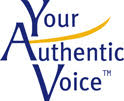 For about five years, I acted in numerous local plays. I had featured roles in various comedies and tragedies and thoroughly enjoyed the process until . . . I started to get typecast.
For about five years, I acted in numerous local plays. I had featured roles in various comedies and tragedies and thoroughly enjoyed the process until . . . I started to get typecast.
You see, I could emote pretty easily. I could get into the skin of dramatic characters and scenes and cry my eyes out when need be. Because of this, I started to receive invitations to do more and more serious roles. While that’s flattering, here’s the thing: when you’re in a play, you rehearse many nights a week for a couple of months. Then you put on the production for another two or three weeks minimum. You can imagine, I would get pretty weary. After awhile, I realized I was spending all my free time being miserable!
At one point, a playwrite/director told me he wanted to write a play with me in mind. Of course, it was going to be a drama. I asked him to write me something light where I got the guy in the end! He said: “Nobody writes those plays.” That’s when I knew it was time to shift my creative focus.
The same thing can happen in your speaking and professional life, especially if you’re visible. If you like the label and it supports your vision, values and direction, wonderful. That’s what we call great branding!
The fact is, labeling is one way we remember people and know when to call them.
For instance, if I need someone to update my OS system, I’ll call my “computer guy.” If I need someone who’s a great networker, I’ll call my “networking expert.” Labels can lead to wonderful opportunities when they get you where you want to be. If, instead, it’s, “don’t give that idea to Jack because he’s a bad brainstormer” and you love to brainstorm, that could present a challenge. If it doesn’t support your present or future goals, whether as a speaker, executive or entrepreneur, you might need to take some action (and I don’t mean walk away!).
Labels can be great opportunities when they get you where you want to go.
If you’re being labeled and want to break through, consider these ideas:
1. Is it true? You might have a blindspot. Could you be exhibiting behavior that goes against what you’d like to be known for? While it’s never easy to hear feedback we don’t like, it’s always better to know so we can make a correction if need be. One good way to find out — ask people you trust to tell you the truth. If you learn you have a blindspot that’s not supporting your goals, take action by getting support to change your beliefs and behavior.
2. Do you respect the source of the “label?” Sometimes, depending on who’s labeling you, you can let it go. If the individual doesn’t represent your values and it’s not significant, it might be best to leave it alone.
3. Is it harmless? If it’s something that’s all in good fun, it’s probably no biggie. It’s important to be able to laugh at ourselves.
4. Is it limiting you? If so, seek solutions to move beyond it. Do you need more training or more visibility? Do you need to actively communicate your abilities or knowledge? Take the initiative and create your own label-busting opportunity. If the label isn’t working for you, look to how you can broaden or shift the perception that exists.
5. Embrace the good. How might the behavior or attributes this label suggests benefit you and those around you? Do they make you more human? More approachable? More real? Sometimes you can find the diamond in the dirt and reframe the label into something that enhances everyone’s experience.
We are all a work in progress. We can act purposefully to create an authentic brand that supports us and yet because we are human, we can easily get labeled in ways that aren’t helpful without intending it. Whatever the label, it is a very small snapshot and certainly not representative of the multifaceted, talented and brilliant beings we are! So, take heart. You can do something about that. If I can support you, I’d love to. I can be reached at Andrea@AndreaBeaulieu.com
Photo courtesy of Flickr user Gage Skidmore

Leave A Comment